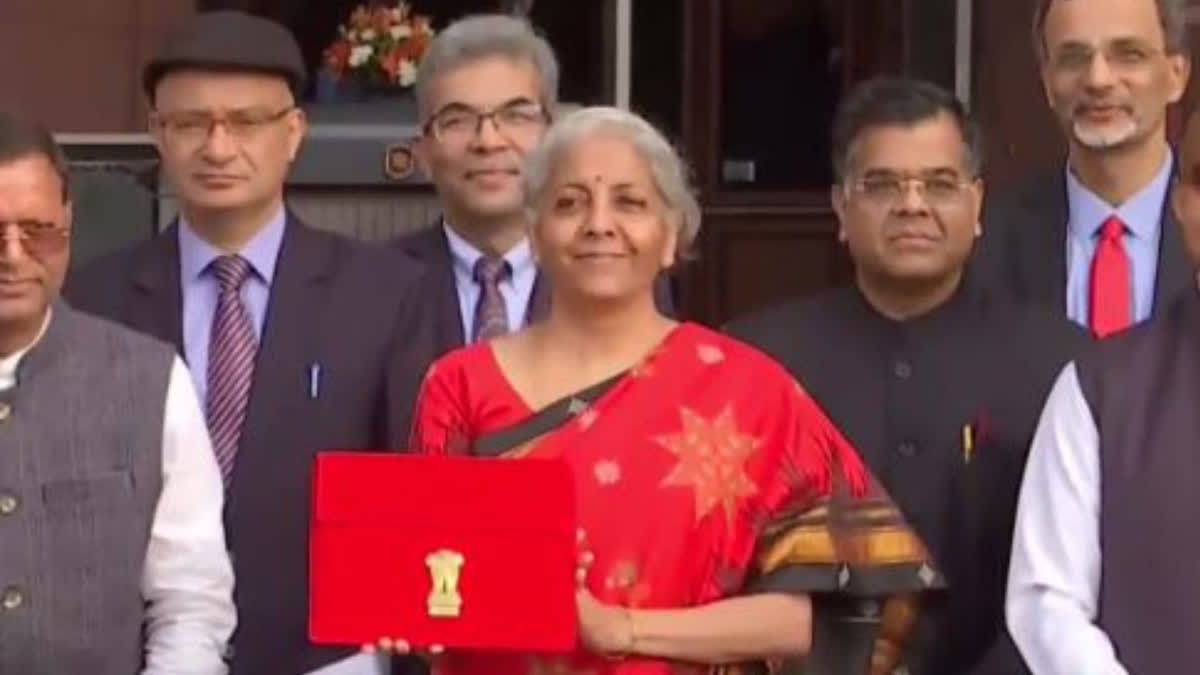New Delhi : Finance Minister Nirmala Sitharaman will present an estimate of the Union Government’s finances to the Lok Sabha on February 1. These estimates detail the revenue collected by the Union government and expenditure under different heads such as pension and salary, establishment expenditure, expenditure of defence and social services which also includes financial assistance to certain sections of the society in forms of subsidy.
This is the biggest financial exercise taken by a government in a financial year which in India begins on April 1 each year and ends on March 31 next year. Since this exercise, popularly known as Union Budget, entails preparation, presentation and passage of the government's revenue and expenditure, there are specific rules regarding budget making and its presentation in the Constitution.
Surprisingly enough, the English term budget which means leather pouch or wallet and has been borrowed from French word Bougette, nowhere figures in the Constitution. Instead, Article 112 of the Constitution which deals with the Union government’s Budget, refers to this as Annual Financial Statement (AFS).
Article 112 to 117, clubbed under the heading - Procedure in Financial Matters – deal with the budget making process and its approval under different circumstances.
Sub-section 1 of Article 112, which deals with Annual Financial Statement, requires the President to cause the laying of an Annual Financial Statement of estimated receipts of Government of India for a financial year before both the Houses of Parliament.
It also requires that the expenditure which will be incurred by the Government of India should be separately reflected in two categories in the Annual Financial Statement. These two expenditures are the money required to meet expenditure described by the Constitution as expenditure charged upon the Consolidated Fund of India. Secondly, the money required to meet other expenditures proposed to be made from the Consolidated Fund of India.
In other words, the expenditure which is to be charged on the Consolidated Fund of India does not require Parliamentary approval by way of a voting in the Lok Sabha. On the other hand, the other expenditures require approval of the Parliament by way of voting in the Lok Sabha and they are called voted expenditure.
Thirdly, Sub-Section 2 of Article 112 also requires that expenditure on revenue accounts shall be distinguished from other expenditures. It means that the Government while presenting the estimates of estimated receipts and expenditures for the next financial year will categorise them as charged expenditures and voted expenditures and also sub-categorize each one of them under two distinct heads of revenue expenditure and other expenditures.
While Article 112 and its Sections deal with Annual Financial Statement (AFS), which is popularly known as Union Budget, and also deals with how different kind of expenditures of Government of India will be organized in the Union Budget, and which one of them will require voting and which will not require voting; on the other hand, Article 113 makes it clear that while Charged Expenditure on Consolidated Fund of India will not require voting but nothing in the clause will prevent a discussion on Parliament even on those expenditures that do not require voting.
It means that expenditures such as salary and expenses of office of the President of India are categorized as Charged Expenditure and they do not require a vote in the Lok Sabha but Article 113 makes it clear that there can be discussion on such expenditures in Parliament.
Read More



